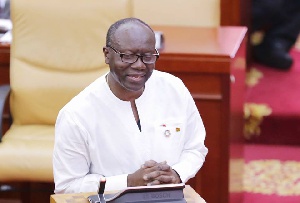The Executive Director of the Institute for Fiscal Studies, Ghana, Professor Newman Kwadwo Kusi says he expects the 2019 budget to focus on job creation.
Over one million Ghanaians from age 15 and older are unemployed, representing a total unemployment rate of 11.9 per cent, a 2015 labour force survey revealed.
Of this number, about 714,916 are females, representing 57.2 per cent and 535,997 for males representing per cent.
Again, according to the Centre for Socioeconomic Studies (CSS), over one million Ghanaians lost their jobs since 2017. Per a 2017 report, cited by CSS the job cuts span the industrial, banking and mining sectors as well as the media and services sectors.
“I want to see that overall, the budget is designed to create jobs. We are looking at a budget that will grow agriculture and manufacturing to create jobs,” Professor Newman Kusi said on Morning Starr Thursday.
The budget is expected to be presented by the Finance Minister Ken Ofori Atta on November 5.
In an effort to tackle the country’s teething unemployment challenge, the government led by President Akufo-Addo introduced the Nations Builders Corp (NaBCo) as a temporal measure to address the situation, security experts warn could lead to a Ghanaian version of the ‘Arab spring’.
The government has recruited over 100,000 on the NaBCo programme under seven different modules for a monthly stipend of GH¢700.
“The NABCO initiative is a very good programme and initiative,” Professor Kusi told the host of Morning Starr Francis. “However, we must ensure that after the three years, the workers get something doing from the programme. The big question remains, after NaBCo, what next?”
He said the government is implementing so many programmes at the same that is why “we are not getting value for money.
Barely two years in his administration, President Akufo-Addo has rolled out about five social interventionist programmes including, but not limited to one district, one factory, free Senior High School, Planting for food and Jobs, Youth in Afforestation and NaBCo.
“Every time the government wants to undertake major programmes, they have to go out and borrow and this is because we hardly take into consideration long-term plans for programmes or projects we embark on,” bemoaned Professor Kusi.
“All the policies the government has launched in the last year and a half or so are very good but it looks like the government is taking on too many programmes that are not well designed to create a link between agriculture and manufacturing industries,” he stressed.
He thus urged the government to invest more in the country’s agriculture sector as it is the only way the unemployment challenges facing the country can be meaningfully addressed.
“Our investments should go into agricultural programme that will benefit the nation significantly,” he said, adding: “Tackling joblessness in this country, agriculture has been a major source of job creation even though a number of people are involved in the services sector.”
General News of Thursday, 25 October 2018
Source: starrfmonline.com

















